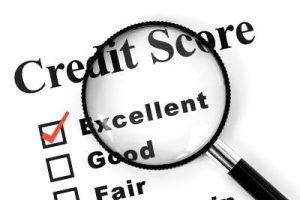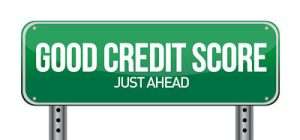UW-Extension: Check your free credit report to build financial security
Federal law gives everyone the right to request three free credit reports each year—one each from the three credit bureaus: Equifax, Experian, and TransUnion. There are three ways to order your free credit report: through the mail, by phone toll free, or at the official website AnnualCreditReport.com.
The University of Wisconsin-Extension “Check Your Free Credit Report: 2/2, 6/6, 10/10” campaign seeks to make the process of remembering to order a free credit report as easy as possible. Anyone can sign up to receive an email reminder from UW-Extension three times a year—on 2/2, 6/6, and 10/10—on the campaign’s website: fyi.extension.wisc.edu/creditreport. While you can order all three reports at the same time, the Walworth County UW-Extension Family Living Educator, Amanda Kostman, recommends that you view one report every four months so you can be sure that the information is up-to-date and accurate year round.
“There are loads of reasons why we may not keep up with monitoring our own credit,” says Kostman. “Life is busy enough with everyday responsibilities. Our credit report reminder campaign seeks to make managing your credit history that much easier.”
Some people may be thinking about their credit report and credit history, but are hesitant to order their free report because they are afraid of what they might find. A credit report contains information about your credit payments and public financial records, such as a bankruptcy or judgment. Negative information can stay on a credit report for 7-10 years, and sometimes longer.
Not all negative information is treated the same, with more serious events pulling down a credit score. A 30-day late payment on a credit card will lower your credit score, for example, but not as much as a 60- or 90-day late payment. An unpaid judgment will lower a credit score much more than a paid judgment. On the plus side, as the negative event gets older, it will lower your score less and less over the years.
Steps to rebuild credit history
Even if you have past negative events on your credit report, there are steps a person can take to begin rebuilding their credit history from today forward. These steps could include:
- Review your credit report to make sure the information reported is accurate and timely to begin with. Take steps to correct errors or have outdated information removed from your report. For tips on correcting errors, go to fyi.extension.wisc.edu/creditreport.
- Pay all bills on time, making sure the creditor receives payment by the due date. Even if your creditor doesn’t regularly report on-time payments to the three credit bureaus, some creditors make a point of reporting only late payments to the bureaus. Set up automatic payments through your financial institution if that helps you keep up, but only if you know you’ll have the money in your account.
- If you have store or bank credit cards, don’t use more than 25-30 percent of your total credit limit. If you have a $1000 credit limit on a credit card, for example, never carry a balance more than $300 in charges.
- Pay more than the minimum due on credit cards, even if it’s $20 or so more than the minimum. Just paying the minimum due can send a message to creditors that money is tight and that you may have trouble keeping up with credit payments. Just over half of all credit card holders pay off their balance in full every month which helps to avoid finance charges in addition to boosting credit worthiness.
“Some people with troubled credit histories may have trouble even getting their foot in the door in order to rebuild credit,” Kostman explains. “There are a few approaches to consider if you’re having trouble getting access to credit currently.”
Many banks and credit unions offer secured credit cards. These cards require the cardholder to keep a deposit in their account that equals the same amount of the secured credit card’s credit limit, such as $300. Fees and interest rates are typically higher than unsecured credit cards. Make sure the secured credit card reports to at least one of the credit bureaus and ask if the card rolls over to an unsecured account after a year or two. The same rules of positive financial behaviors still apply to unsecured cards in that it’s important to make on-time payments and not use more than 30% of the credit limit.
Another option that’s more common with young adults is to become an authorized user on a parent’s credit card. Not all credit card companies report authorized users to the credit bureaus, so that is something to ask about before adding another person to the account. Note that the credit cardholder is responsible for all charges the authorized user makes on the account, and the authorized user will also be affected by the primary account holder making late payments. An authorized user arrangement is not right for every household and requires upfront communication.
Building and maintaining good credit doesn’t happen overnight. It also takes conscious effort to keep up with positive financial habits. In addition to email reminders, the UW-Extension “2/2, 6/6, 10/10” website, provides information and links for ordering, understanding, and monitoring your free credit reports.
For more information on credit reports, contact Amanda Kostman, Walworth County Family Living Educator at amanda.kostman@wisc.edu or 262-741-5961.







